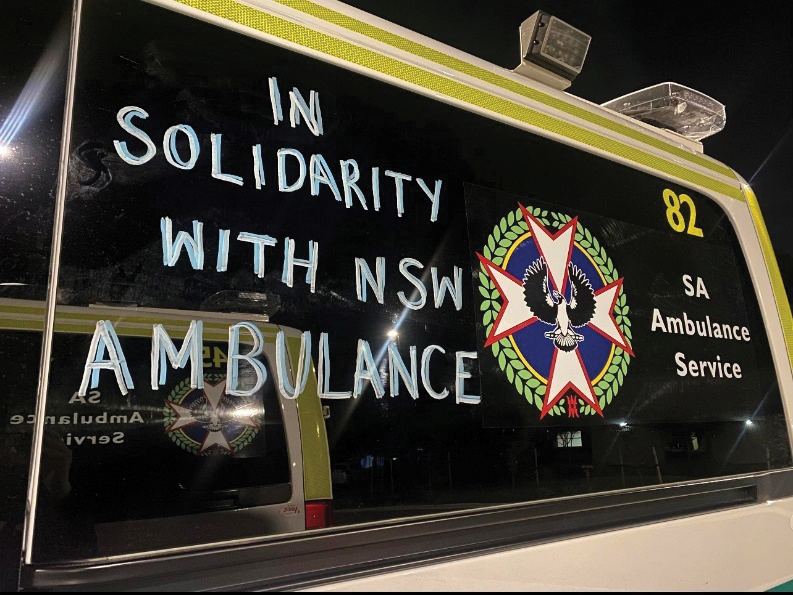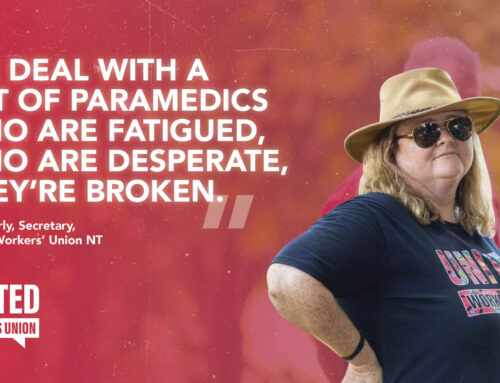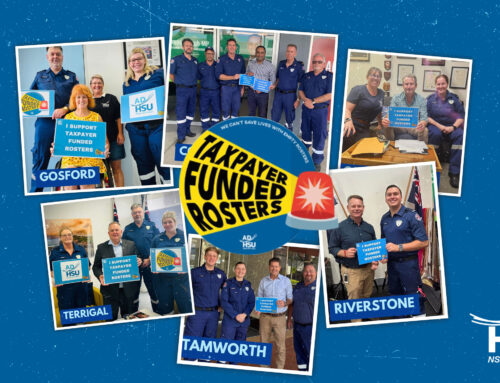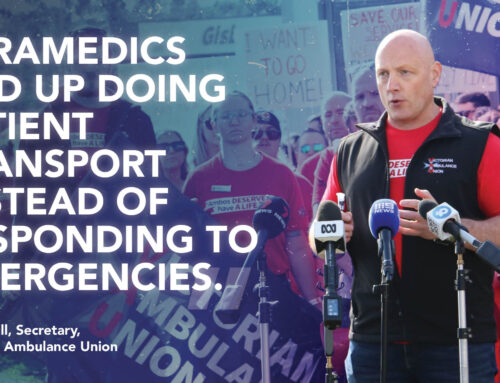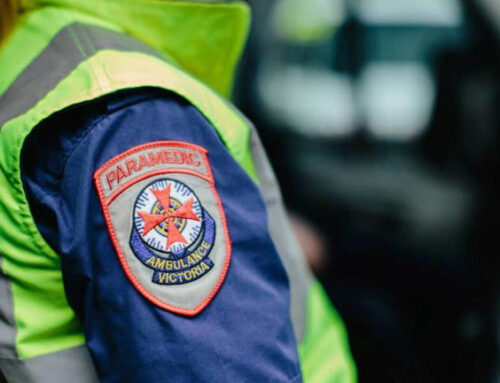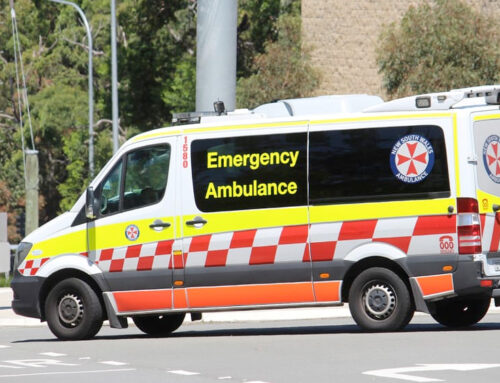Our members are all impacted by increasing rates of violence and aggression in their workplace. Tragically, the gravity of this threat was deeply felt in our members’ hearts earlier this year with the violent assault of NSW comrade Steven Tougher, who tragically never made it home from his night shift on Friday, 14th April.
The AEA and its members honoured Steven’s family’s wishes by not mourning him, but instead, by celebrating his life. Steven lived his life in the service of his community. He was known for his genuine warmth and empathy, and his passion for helping others.
It is a passion shared by ambos collectively.
AEA members honoured Steven on International Workers’ Memorial Day by chalking their ambulances with messages of support and solidarity, and by wearing a black ribbon for their fallen comrade, and the hundreds of Australian workers who tragically never made it home to their families.
This shocking event has brought the serious problem of violence and aggression against our members back into the spotlight.
In SA, our members reported 197 assaults in the last year alone – and these are only the ones that went reported, with growing concerns of under-reporting of these kinds of incidents.
The AEA has raised our serious concern about the increasing assaults of our members with SA Ambulance Service. We have called for more and more effective measures aimed at improving members’ safety in the workplace.
‘Keep your hands off our Ambos’ was a public awareness campaign run 8 years ago in response to the alarming rates of violence & aggression towards Ambos that was occurring back then. Since that time, violence and aggression has continued to escalate, yet there have been no public campaigns.
Our members are fortunate to have individual portable radios with duress alarms which, when activated, alert emergency services to their location and need for assistance and ensure a rapid police response. Operational Safety training is also provided regularly to our members, equipping them with defensive skills they can rely on if required. Since 2017, SA has also been fortunate to have Gayle’s Law – which was enacted following the horrific murder of nurse Gayle Woodford in remote SA by the family member of a patient she was called out at night to attend – which restricts solo response dispatches in remote areas.
But more can, and should, be done to provide safer workplaces for our members.
SAAS recently trialled a specialised Mental Health Clinical Telephone Assessment Paramedic role, responsible for providing 24/7 support to mental health patients. Paramedics in this role were able to access patient records on hospital-based systems and provide relevant information – such as information about a patient’s medical condition, triggering flags, or history of violence – to crews on their Mobile Data Terminal, before they arrive at the patient’s address. This information wouldn’t otherwise be known to the crew prior to arrival. Sadly, this trial role has not been afforded ongoing funding. But in the short time it was operating, it demonstrated benefits for patient care as well as for the sharing of critical safety information to help protect members.

